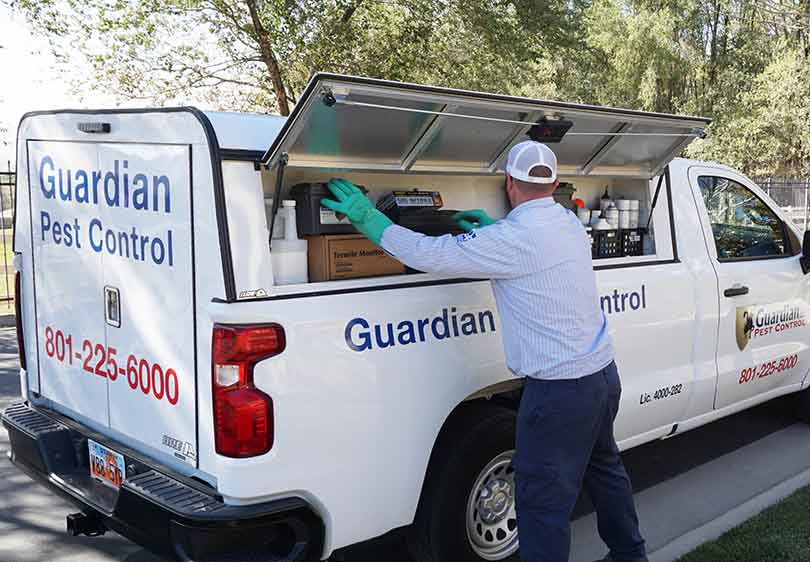Rest Easy with Orem Pest Control: Reliable Protection Against Pest Intrusions
Rest Easy with Orem Pest Control: Reliable Protection Against Pest Intrusions
Blog Article
Uncovering the Different Types of Bug Control Techniques and Their Applications
Parasite control is a vital element of maintaining a secure and healthy atmosphere, whether it remain in domestic, business, or farming settings. Various techniques have actually been developed and fine-tuned for many years to properly reduce and take care of parasite invasions. From chemical techniques that target specific insects to organic methods that harness all-natural predators, the world of insect control is diverse and vast. Comprehending the various kinds of parasite control techniques and their applications is important for applying the most lasting and appropriate services. Let's explore the details of these approaches and exactly how they can be properly utilized to attend to pest-related challenges.
Chemical Bug Control Techniques
Chemical pest control methods are extensively made use of in farming and bug management to properly eradicate or manage pest infestations. These techniques involve making use of chemical materials, such as chemicals, pesticides, and herbicides, to eliminate or minimize insect populations that pose a threat to plants, animals, or human health and wellness. Pesticides, for instance, target particular bugs like rats, weeds, or bugs, disrupting their life process or creating direct damage upon get in touch with. Herbicides are specifically designed to regulate unwanted plants that competes with plants for resources and nutrients. Insecticides, on the various other hand, are made use of to deal with insect bugs that can damage plants and transmit illness.
While chemical bug control techniques can be very effective in managing pest populaces, they also raise concerns about possible ecological and health risks. It is crucial to adhere to security guidelines, make use of incorporated pest administration techniques, and consider alternative approaches to lessen the negative impacts of chemical parasite control techniques.
Biological Bug Control Approaches
 Organic insect control techniques use living microorganisms to minimize and take care of pest populations in a environmentally pleasant and lasting way. One typical technique is the release of ladybugs to battle aphids in gardens, as ladybugs are all-natural killers of these damaging bugs.
Organic insect control techniques use living microorganisms to minimize and take care of pest populations in a environmentally pleasant and lasting way. One typical technique is the release of ladybugs to battle aphids in gardens, as ladybugs are all-natural killers of these damaging bugs.
Biological bug control techniques use several benefits over chemical approaches. They are generally more secure for the setting, as they do not leave damaging deposits or add to pollution. In addition, these techniques are frequently extra targeted, influencing only the parasite species without harming beneficial insects or various other microorganisms. In addition, organic control can be a lasting remedy, as the presented organisms can develop sustainable populations and give recurring insect monitoring. On the whole, organic parasite control approaches present a reliable and all-natural option to traditional chemical treatments, promoting a balanced community and much healthier settings.
Physical Parasite Control Approaches
Making use of physical approaches to manage parasites entails using mechanical or non-chemical ways official statement to mitigate and take care of insect infestations successfully. These techniques count on physical obstacles, traps, and various other techniques to deter and remove insects without the use of unsafe chemicals. One typical physical insect control approach is the installment of screens, fencings, or internet to block pests from getting in certain areas. This method is specifically effective in maintaining out insects and little animals from buildings or yards.
Another physical method is the use of traps, such as snap traps for rats or scent catches for pests. These catches objective to capture bugs without posing any type of risk to humans or the environment. In addition, physical control methods can consist of strategies like handpicking pests off plants, making use of vacuum cleaner tools to remove bugs, or utilizing warm therapies to eradicate bed pests and various other parasites in infested areas.
Integrated Pest Administration Methods
Implementing an all natural technique to pest monitoring, Integrated Parasite Monitoring (IPM) techniques aim to combine different efficient methods Resources to control and avoid parasite infestations while lessening ecological impact and ensuring lasting parasite control practices. IPM entails the assimilation of multiple control techniques such as organic control, cultural methods, mechanical control, and the cautious usage of pesticides.

In addition, IPM stresses the value of monitoring and evaluating pest populaces to identify one of the most proper control methods. By carrying out IPM strategies, pest control initiatives end up being much more targeted and effective, lowering the risks connected with extreme pesticide use and advertising lasting pest administration remedies.
Natural and Organic Bug Control Options

One preferred organic parasite control technique is neem oil, originated from the seeds of the neem tree, which works as a repellent and interrupts the development and advancement of pests. Diatomaceous earth, an all-natural silica-based powder, is another reliable natural insect control alternative that works by drying out pests upon call. By incorporating natural and natural bug control choices into pest administration methods, people can properly control insects while lessening damage to the setting and advertising lasting methods.
Verdict
Finally, different insect control strategies such as chemical, biological, physical, integrated bug management, and natural options are available for properly managing pest problems. Each method has its own benefits and applications relying on the sort of pest and the atmosphere. By recognizing the different types of insect control strategies and their applications, individuals can make educated decisions on the most suitable technique to regulate bugs and protect their home.
Chemical insect control methods are commonly made use of in farming and insect management to effectively remove or control pest infestations - Orem Pest Control. Natural pest control techniques include making use of organic control agents, such as bloodsuckers or killers, to handle pest populaces. By including natural and natural pest control options into parasite management strategies, people can efficiently regulate bugs while reducing injury to the setting and advertising lasting practices
In verdict, numerous bug control techniques such as chemical, organic, physical, integrated pest administration, and all-natural options are offered for efficiently handling insect infestations. By comprehending the various kinds of parasite control strategies and their applications, people can make informed choices on the most ideal technique to regulate insects and shield their residential property.
Report this page